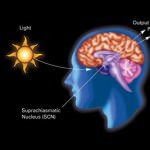

Sleep Education: Benefits of Sleep
In sleep education, you will learn about the importance of sleep and why it is not a luxury.
Tissue Repair
As muscles move, there are tiny tears that occur. These tares are repaired as you sleep. In fact, most of the growth that occurs in muscles happens at night. The body manufactures extra protein during sleep that helps you to stay health and also fight infections.
Sleep for Heart Health
Your heart does not stop at any point in life. However, it does slow down its activities and get “some rest” during sleep. Without enough sleep, you heart can easily develop stress and inflammation that can lead to cardiovascular diseases.
Sleep lowers Stress
One of the things you learn in sleep education is that sleep lowers stress. As you try to cope with the fast-paced world during the day, stress hormones are produced. In addition, the pressure of your blood goes up. If stress hormones and blood pressure are not reduced during sleep, the result is wear and tear of tissues.
Good Sleep for Control of Obesity
Controlling obesity is associated with exercises making it difficult to understand why “lazing around” in sleep lowers obesity. Sleep education teaches you that hormones that control appetites are produced massively during sleep. In fact, insomniacs are normally obese.
Sleep Education: Symptoms of Sleep Problems
Sleep education helps you learn the commonest symptoms of sleep disorders. This way, sleep problems are identified and treated early. The most basic symptom seen in sleep disorders is insomnia. Here are the signs of insomnia:
- Problems falling asleep.
- Waking up too early.
- Sleep is often not refreshing.
- Sleepiness and drowsiness during the day.
- Irritability.
If you experience any of the above symptoms, you should try to find out the underlying cause.
Sleep education also teaches you some tips for better sleep. Here are basic tips for better sleep:
Sleep Tips at Night
- You bedroom is a special place that should only be used for sleep and sex only. Ideally, it should not have any items that remind you of work.
- Condition your brain to sleep and wake up at the same time everyday.
- To reduce the chances of interrupting sleep to visit the toilet, drink and eat less at night.
- Make your bedroom as dark as possible and switch off the light at the same time every night.
Sleep tips during the Day
- In the second half of your day, drink fewer caffeinated drinks.
- In hours leading to bedtime, reduce nicotine and alcohol.
- Naps should be avoided in the evening. In addition, naps should not be more than 30 minutes long.
As you can see, there is a lot to be learned in sleep education. Therefore, it is good to take your time and learn more about the way you will spend about a third of your life – sleeping.
